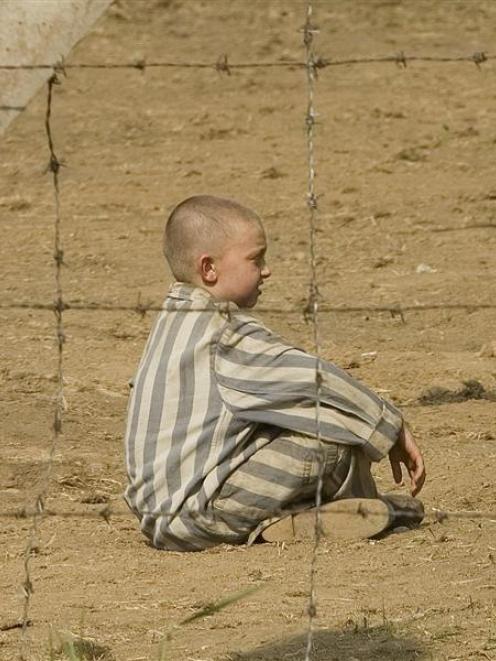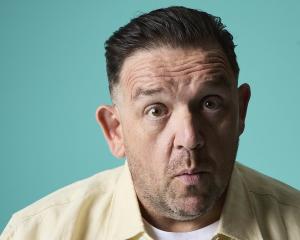
Scottish actor David Hayman gives a haunting performance in the Holocaust drama The Boy in the Striped Pajamas, but it might never have happened if not for another actor wanting to preserve his mane of hair.
In the film, Hayman plays a concentration camp inhabitant named Pavel. But he wasn't director Mark Herman's first choice.
"He had offered him to another actor, David Bradley," said Hayman (58), over the phone from his home in Glasgow.
"But he refused to cut his hair. He has had long hair for 20 years and refuses to cut it."
So the film's casting director called Hayman, who has little hair to cut; he agreed to take a sleeper train to London to read for the part.
"I had long been an admirer," Herman said of Hayman, a noted theatre actor and film director in Scotland.
"I think what cinched it for me is he came into the casting office and was given the script. He went around the corner to have a coffee and read the script.
"He came back an hour later and gave the most amazing reading. The fact that it took him just an hour to digest the script and the character."
The film's story, which was adapted and directed by Herman from John Boyne's novel, revolves around 8-year-old Bruno (Asa Butterfield), whose father (David Thewlis) is a high-ranking Nazi official during World War 2.
The family moves from Berlin to his father's new post as a concentration camp commander in the country.
Bruno, though, in his naivete believes the camp is a farm and wonders why its uniformed inhabitants seem to be wearing striped pyjamas.
One day, Bruno sets out to go to the farm, where he befriends a prisoner his own age (Jack Scanlon) sitting on the other side of the barbed-wire fence.
Hayman's Pavel is also one of the concentration camp inhabitants, a former doctor now working as the help at the family home.
Weak, shuffling - Pavel resembles an abused animal fearful of its next whipping - but still full of dignity, he is befriended by Bruno when he wraps the boy's leg after a fall off a swing.
Though Pavel's screen time is limited, Hayman made the most of it - and quickly.
With just a week before Hayman was due to leave for Budapest for the film, the production company sent him stacks of information, including DVDs and books about the camps.
"You look at those people behind bars, and we can't imagine what they have gone through," Hayman said.
"They haven't quite given up, but there is a deep, deep sadness that hangs within them. I guess what I tried to get with Pavel was that deep sadness within him about man's inhumanity to man."
Several years ago, Hayman visited Auschwitz while on a tour of Europe with Glasgow's Citizens Theatre.
"We were in Poland and were taken on an official trip," he recalled.
"To actually walk through those gates and stand there. ... There is silence. The birds don't sing, and the flowers don't blossom.
"We were speechless when we were driven back. It clings to you."
On the set, the usually jovial Hayman would walk away from the others about 30 minutes before he was to shoot a scene as Pavel, a transformation that fascinated director Herman.
Hayman himself admits he doesn't know how he did it.
"If I could explain that, I would write a book and be a multimillionaire because every single actor in the world would buy it," he said.
"There is a point in acting where you suspend the process and something else comes over you.
You throw all of [your preparation] out the window and then you just follow your instinct and it sort of happens."
Besides being an actor and director, Hayman is an honoured humanitarian whose seven-year-old organisation, Spirit Aid, is dedicated to helping children and young people in war-torn areas, including Afghanistan, where he has funded two mobile medical clinics that examined 120,000 people last year.
The organisation also set up an orphanage in central Baghdad.
"It's the most important aspect of my life," Hayman said of the work, which was inspired by his mother.
"I was blessed to be born of a mother who was an angel, barely disguised as a human being. ... When you have that wonderful example of humanity as your mother, you don't have any choice in this world. You have to be a good guy."











